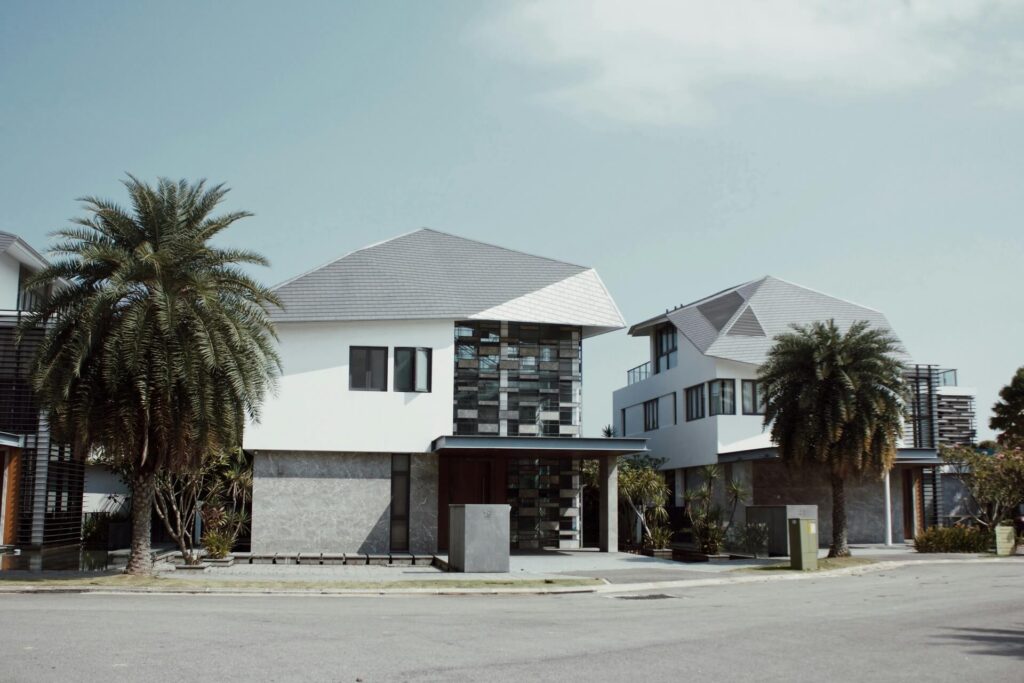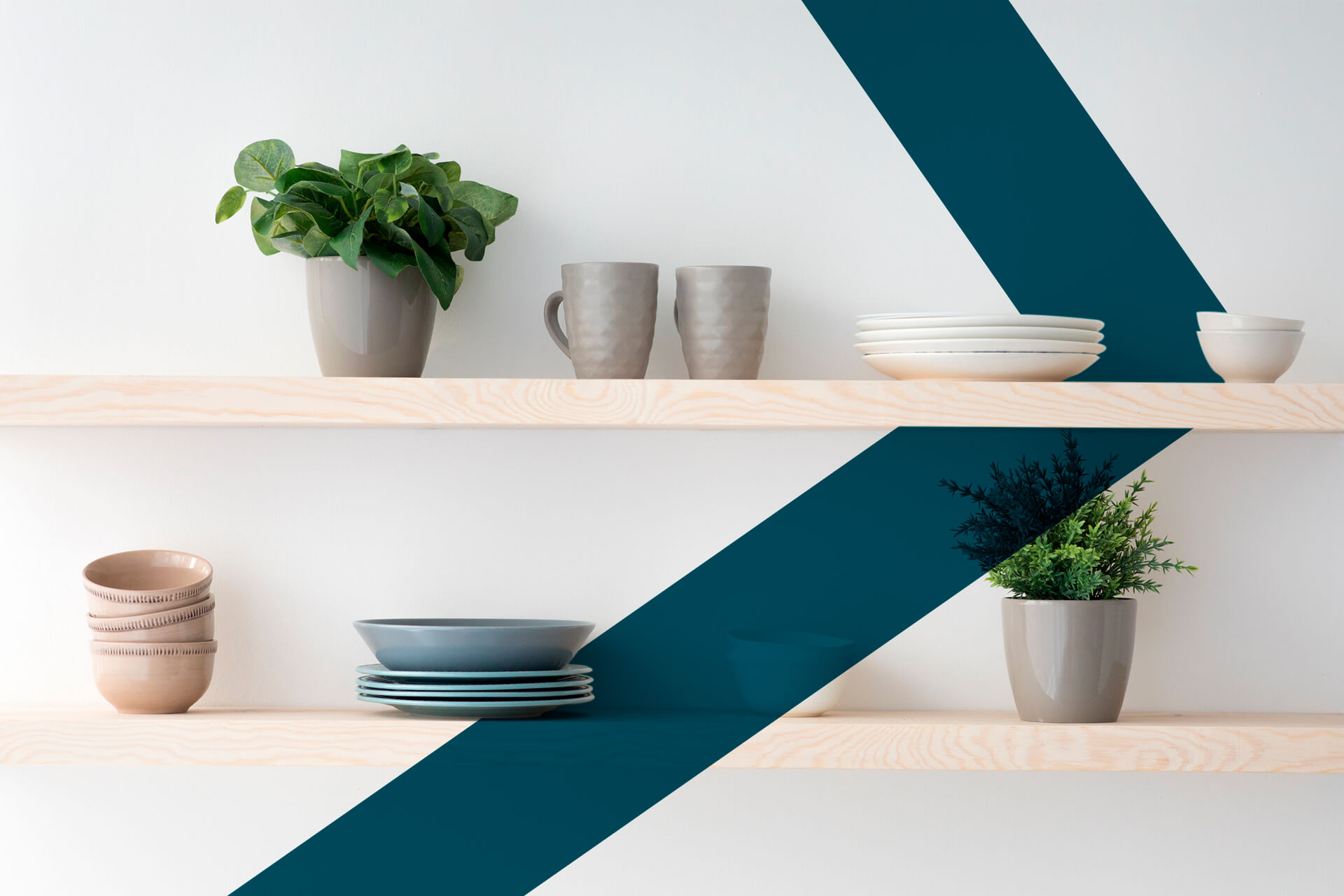
We are reader-supported. When you buy through links on our site, we may earn an affiliate commission.
Many people say the kitchen is the heart of the home, but that comes at a cost. Between meals, cooking and storing all your various pots and pans, there’s ample opportunity for the space to get out of control. Luckily, you can declutter your kitchen in just a few short sessions by following these easy tips.
1. Decide What You Really Need
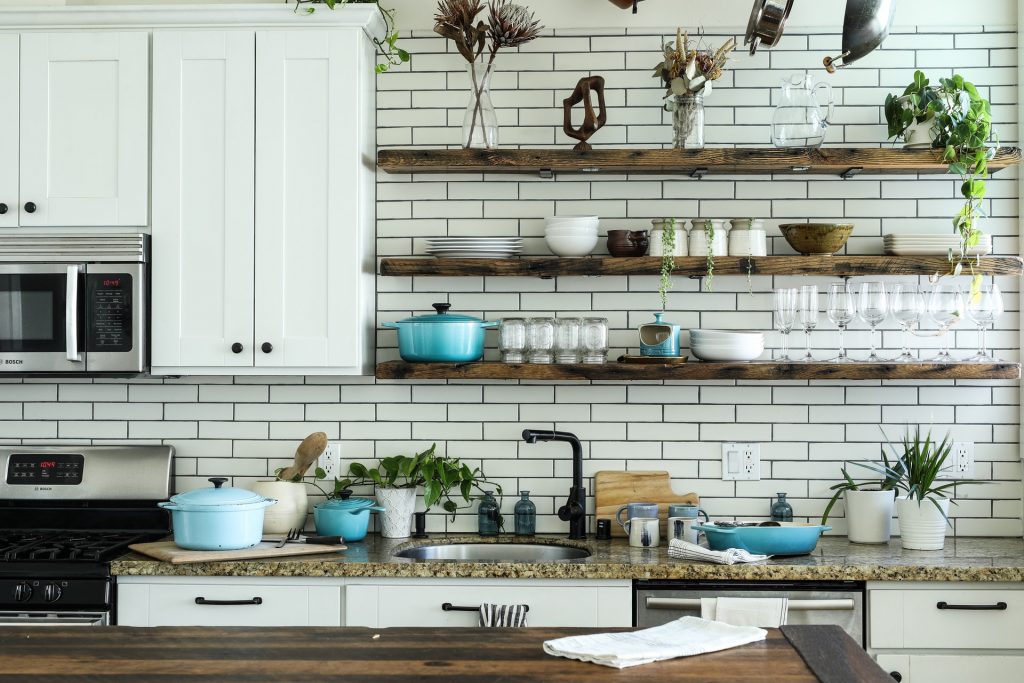
Chances are, you don’t even use half of the “stuff” in your kitchen, whether it’s intended for cooking or just extra junk you ended up shoving in an unspecified drawer. Freeing yourself of extra junk is a key way to declutter your kitchen.
To decide what you really need, start by taking everything out of the drawers, cabinets and shelves in your kitchen. Then, organize them into the following boxes:
1. To Donate
This box is the one you’ll drop off at a local donation center. It might contain extra items you don’t need anymore, but that someone else could still use. Donating kitchen items that are still in decent condition is a smart way to eliminate some of the duplicate items you have in your kitchen, like those 25 extra coffee mugs you haven’t touched in years.
2. To Trash
The items in this box have, unfortunately, seen their final days. Maybe it’s filled with a few stained extra dish towels, halfway broken appliances or rusty silverware. If you have something you don’t use anymore that someone else probably wouldn’t value, trash it.
3. To Store
This box is for your sentimental items, such as an heirloom, your souvenir coffee mugs and anything else you don’t use every day but just can’t part with. Some people like to hold onto these items to pass down to their kids one day, or just to revisit from time to time. Either way, they don’t need to be taking up the precious real estate in your kitchen. Pack them up neatly in a box, then store them elsewhere in the home.
4. To Redistribute
Fill this box with anything that doesn’t even belong in your kitchen in the first place. This might include the random deck of cards, receipts, instruction manuals, pens and pencils, notecards — you get the gist. Anything you don’t use to prepare food shouldn’t be in the kitchen. Redistribute these items to places in the home where they make sense from an organizational standpoint!
5. To Keep
After sorting everything, what you’re left with is your “to keep” box. This will include the cups and dishes you use every day, your silverware, pots and pans, etc.
2. Eliminate Endless Duplicates
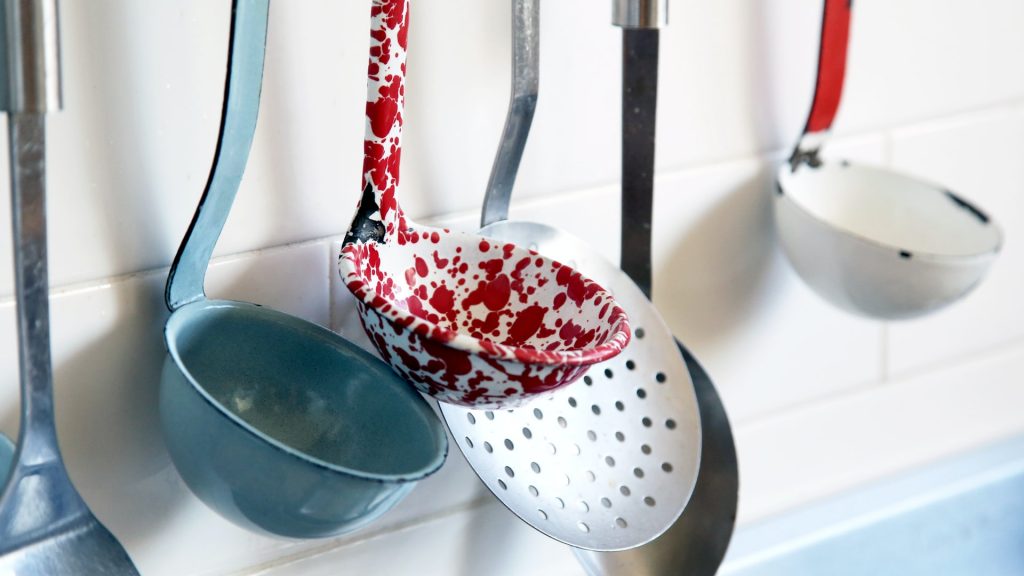
You hopefully took care of this tip in the first step as you sorted your belongings. Just in case, be sure to eliminate any duplicate items that you don’t need. For example, you don’t need four colanders at hand. Pick one — maybe two — and if you can’t bear to part with the others, put them in storage so you can get them later. You’ll most likely forget you ever had them in the first place.
3. Rearrange Based on What You Use Most
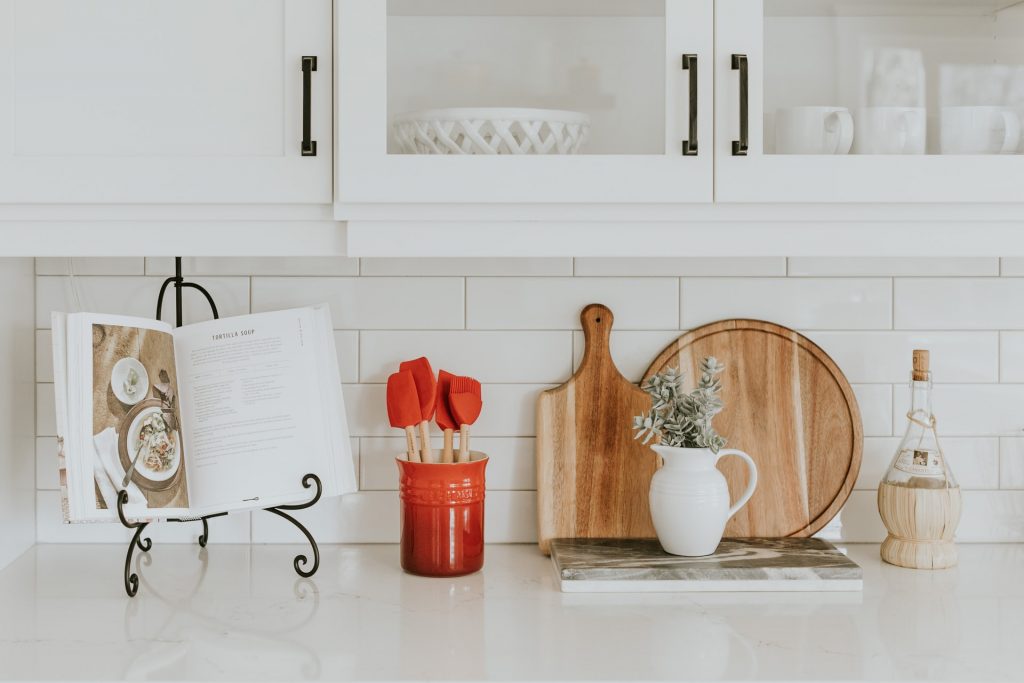
It doesn’t make sense to have items you rarely use be the easiest to access in your kitchen. For example, many people keep things like their toaster and blender right on the countertops — and how often do you really make a bagel or smoothie?
Move these large items underneath your cabinet to free up counter space for food prep. A clear counter is also much easier to keep clean. You could then use the area your toaster or blender once occupied as a coffee or tea station, which you would probably use every morning.
4. Get Creative With Your Space
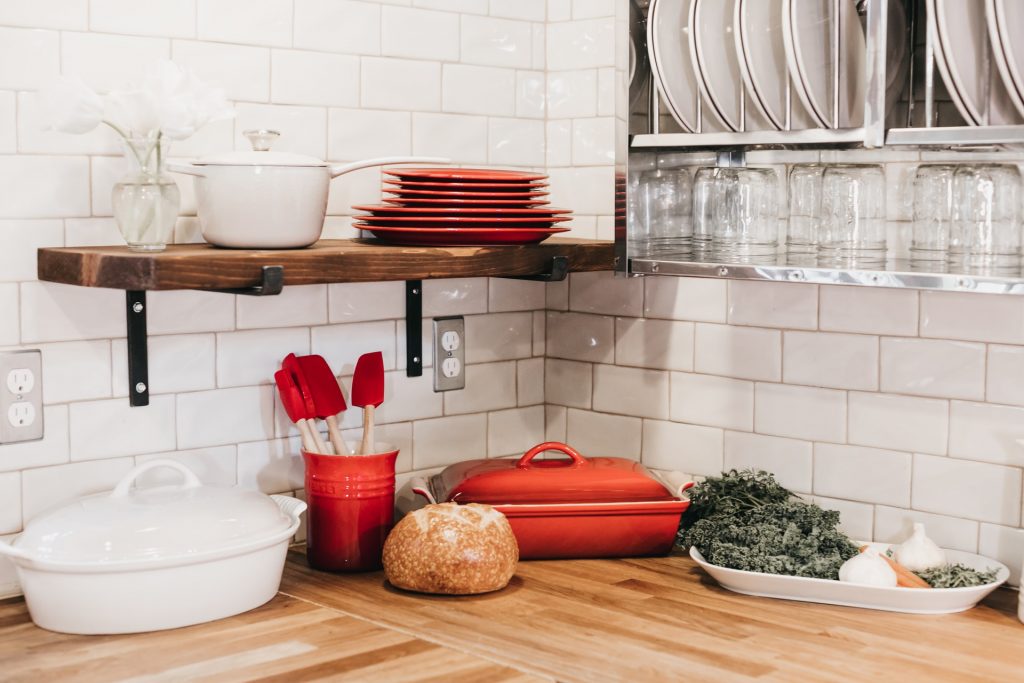
If you have limited cabinet and shelf space, you might have to get creative with where you store certain items. Think logically about how certain pieces will fit together and in a certain place. Then think outside the box to come up with unique ways to save space.
A few ideas include hanging pots and pans, using the top of your refrigerator and cabinets and adding shelving inside cabinets and anywhere else you have room for it.
5. Invest in Bins, Jars and Other Organization Tools
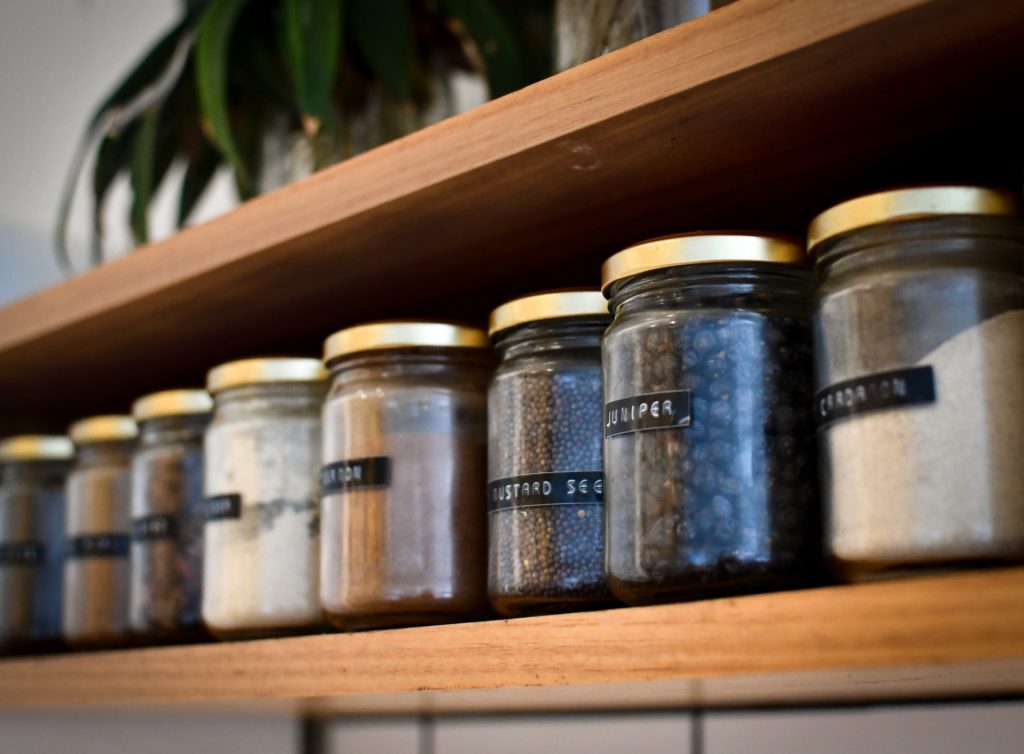
Organization tools like bins, jars and other containers will help you keep your kitchen clutter-free and make it easier for you to find everything you need. This tip is especially important for your pantry or the cabinets where you store your food. You should be able to clearly see all the food items you have available to you to simplify the cooking process and minimize food waste.
How many times have you gone to the store and bought a few new boxes of pasta, only to realize you already had five unopened boxes all the way in the back of your pantry? Keeping your kitchen organized and clutter-free will help you save money and reduce the amount of food you end up wasting.
Tips to Declutter Your Kitchen
Having a cluttered kitchen eats up your time, adds stress to your life and can lead to mental clutter, as well. By taking the time to declutter your kitchen every few months, the time you spend preparing meals and making your morning coffee will be much more enjoyable.




